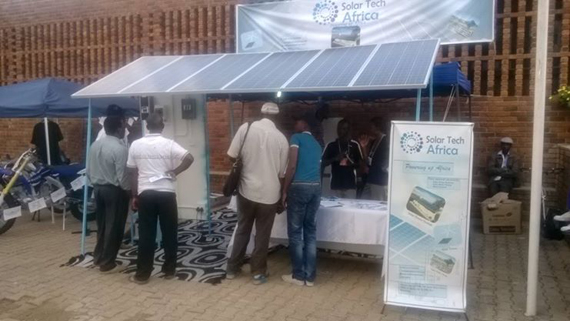
A BULAWAYO-BASED power utility firm, Solar Tech Africa, has appealed to the government to scrap off 60% import duty imposed on its solar systems to allow for more investment in the sector as well as improving power supply in the country.

OWN CORRESPONDENT
Solar Tech Africa is a private sector firm specialising in the business of designing, planning and installing solar or wind power systems in built-up areas.
Its systems are designed to create value to all the stakeholders through creation of sustainable generation of electricity, creating value to areas where they installed their systems, providing uninterrupted power supply to clients and helping them make money for themselves from the systems that they have sold and installed.
Solar Tech Africa managing director Mehluli Dube said buying a solar power system in Zimbabwe has proved to be costly due to prohibitive tax charges on imports. He appealed to the government to review taxation on solar products.
“There is need to review these taxes to allow for investment in this area and improve power supply and access by millions of people, families and businesses. This kind of a scenario not only will have a positive effect on power availability and reliability, but will definitely drive forward productivity in so many sectors of the economy through improvement of value chain activities in any given production line,” Dube said.
“If possible, the government should scrap off 60% import duty from our solar systems so that many people can afford them because we believe solar energy is the alternative source of power,” he added.
- Chamisa under fire over US$120K donation
- Mavhunga puts DeMbare into Chibuku quarterfinals
- Pension funds bet on Cabora Bassa oilfields
- Councils defy govt fire tender directive
Keep Reading
He also said the Zimbabwe Energy Regulatory Authority (Zera) should quickly approve feeding-in of solar power into national grid. The company showcased its 2,4 killowatts system that powers up a fridge, lights, entertainment, one plate stove and an iron during the Zimbabwe International Trade Fair.
The Zera in March completed a study on renewable energy feed in tariffs for applicable technologies in a move aimed at enhancing the country’s power supply situation.
Zimbabwe is reeling from the negative effects of intermittent power supplies and load-shedding, a situation that has adversely affected all facets of the economy.
A number of countries the world over are rapidly adopting renewable energies. Germany’s renewable energy sector is among the most innovative and successful worldwide with its share of electricity produced from renewable energy increased from 6,3% of the national total in 2000 to about 25% in the first half of 2012.
At the moment, Zesa Holdings is struggling to meet power demand in the country, and if it allowed small and large independent power producers around the country to feed into the national grid, through net-metering, that will have quite a significant effect in improving power supply and reduce load-shedding.










